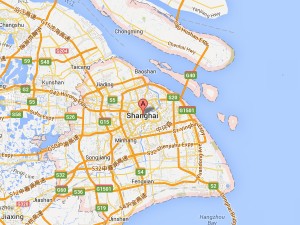New Sino game lets players retake disputed isles

“Glorious Mission Online,” China’s answer to “Call of Duty,” marks the 86th anniversary of the founding of the People’s Liberation Army (PLA).
The game, an online version of an earlier first-person shooter used by the PLA to train troops, features the East China Sea islands called Diaoyu by Beijing and Senkaku by Tokyo.
Tensions have been mounting over the islands, which are claimed by China but controlled by Japan. Beijing’s vessels regularly sail into the disputed waters and, according to state media, tell Japanese ships they are encroaching on Chinese territory.
A press release for the game says: “Players … will fight alongside Chinese armed forces and use weapons to tell the Japanese that ‘Japan must return our stolen territory.’”
Images from the game’s website are labeled “Guard the Diaoyu islands,” and a trailer posted online features shots of Japan’s Prime Minister Shinzo Abe.
It also shows planes taking off from a computer-generated version of China’s first aircraft carrier, the Liaoning, which went into service last year.
The game was only due to become available at 5 p.m. on Thursday, but its designers Giant Interactive Group, who developed it jointly with the PLA, told Agence France-Presse millions of users had already registered to play.
Giant cooperated closely with the PLA while working on the game to ensure that weapons looked authentic and soldiers’ voices were accurate, said the company vice president, Gu Wen.
“Our relationship with the military is like the relationship between the US Army and Hollywood,” he said.
The release comes at a time of increased fears over the PLA’s expansion among China’s neighbors—Beijing is also in a dispute with several countries in the West Philippine Sea (South China Sea).
But Gu linked the game with attempts by the PLA to present itself as more transparent, including inviting foreign journalists to tour military bases, to boost its image abroad.